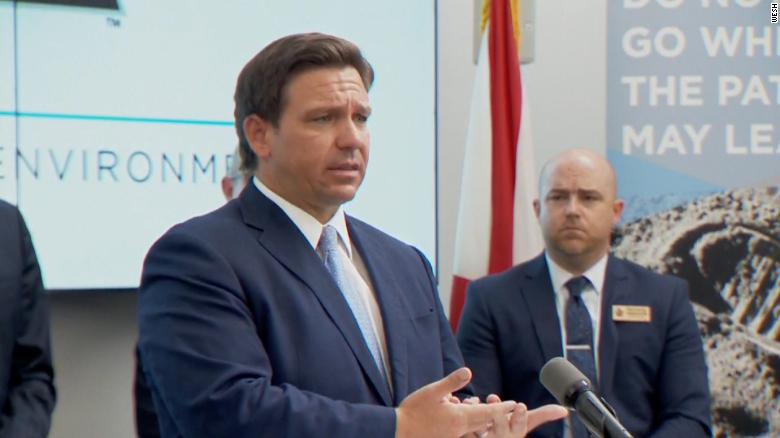
As Florida Republicans, led by Gov. Ron DeSantis, escalate their fight against President Joe Biden’s coronavirus vaccine mandate, they are testing a new method to support resisters: giving taxpayer money to the unvaccinated. Florida is one of a handful of states that now ensures people who refuse the shot remain eligible for unemployment benefits if they lose their job over their stance. Iowa, Kansas and Tennessee have done the same.
And DeSantis, one of the leading Republican voices against federal vaccine requirements, wants to go even further. He says his state may pay the fines of businesses that snub the federal vaccine mandate — and he’ll do it with coronavirus relief aid signed into law by Biden.
“This is an important fight,” DeSantis recently told business leaders. “And it’s a fight we’re happy to join.”
It was only a few months ago that a majority of Americans lived in a state that offered people cash or other freebies if they got vaccinated against the coronavirus. Democratic and Republican governors in more than a dozen states launched lotteries, promising the newly vaccinated a chance at a prize of $1 million and sometimes more.
But the push by DeSantis to use taxpayer money to compensate people who defy vaccine mandates is the latest example of the fast-changing politics around vaccines and it could become a template for other Republican leaders looking to align themselves with an increasingly vocal minority of Americans refusing to get the shot. DeSantis, a potential 2024 contender and one of his party’s most popular figures, has often set the tone for other Republican governors in responding to the pandemic and pushing back against the Biden administration.
If more states follow, it could dull Biden’s sharpest tool — the threat of lost income — in his push to encourage vaccinations. The growing resistance has created more uncertainty about America’s response to the pandemic amid a winter surge causing another wave of hospitalizations in the north and mountain west. Meanwhile, a new coronavirus variant, Omicron, has entered the US, officials confirmed Wednesday, rattling markets and leaders.
Crystal Watson, a professor of public health risk assessment at Johns Hopkins University, worries these states are giving people a reason not to get vaccines and creating a safe haven for the virus at a time when the United States should be turning the corner against the pandemic.
“The longer we have high levels of circulation in our communities, the more variants that are worrisome we’ll see,” said Crystal Watson, a professor of public health risk assessment at Johns Hopkins University. “From a scientific perspective, from a public health perspective, creating support for people who won’t get vaccinated, that’s really damaging.”

